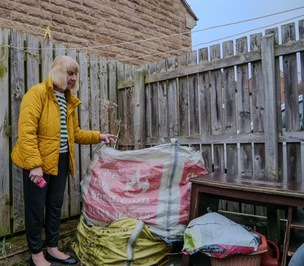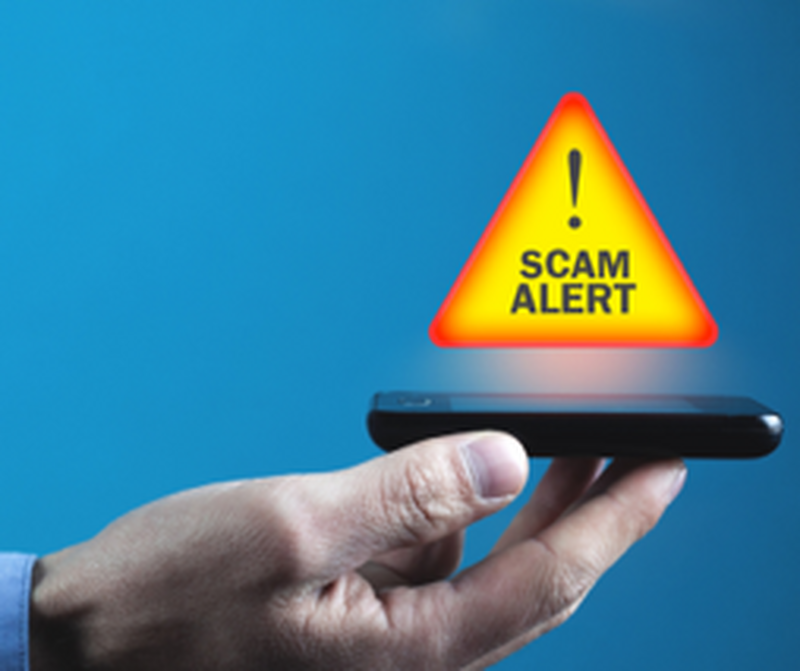SCAMMERS who are exploiting a rise in QR code usage to steal cash from unsuspecting Barnsley victims have been told their criminality is being treated as a priority by officers.
The Chronicle can reveal a huge surge in people being scammed in the town having accessed a QR code to pay for a service.
Last year, a total of 35 people fell foul and lost cash to so-called ‘quishing’ - more than treble the ten people who lost out just two years before.
The scams see fake or misleading codes scanned by unsuspecting victims, who are directed to websites and apps controlled by fraudsters and tricked into handing over data such as bank details.
They are most often traced to areas where contactless payments are common, such as car parks, but have also been linked to QR codes displayed on television, in emails and on postal packages.
Experts believe organised crime gangs are behind the fast-spreading fraud, which is presenting a significant challenge to authorities both locally, nationally and internationally.
Lead officer Katherine Hart, from Trading Standards, said the figures are likely to represent just a fraction of the problem, which she said is now a global issue that is significantly under-reported.
She added: “The figures do not reflect the scale of the problem because the nature of this fraud means it often goes unreported.
“Sometimes that’s down to consumer embarrassment but a lot of the time we’re just not sure how to report or record them.
“People aren’t sure where to report the frauds to and at the end where they’re taking the details, it can be difficult to know what to record this as.
“At the end of the day they do tend to be run by serious and organised crime groups.
“They are so sophisticated and this is massive now, it’s a global issue.
“But those putting up fake QR codes are sometimes just paid a small amount of money and often won’t have a clue what they’re doing.
“Parking meters were just the start - we’re now seeing QR codes posted everywhere, from within emails to texts and through the post.
“They take you to a platform that’s designed to take our details, where the criminal can scam you on the spot and take your money or data harvest to use your details later down the line, which is a worrying thing.
“Quite often, the codes will take you to a payment platform and people pass on lots of personal detail and their credit card or bank details.
“You may lose £2.99 or £5.99 - a lot of people won’t report that and don’t realise they’ve passed their information to a criminal organisation.”
Given the initially small sums being successfully taken, Trading Standards have reported that criminals then contact their victims - sometimes weeks later - to open up a line of communication in an attempt to take larger amounts.
“Invariably, a couple of days, weeks or even months later, they’ll get a call telling them they’ve been a victim of fraud and they already have all of your information because you’ve shared it with them earlier,” Katherine added.
“They convince you using very coercive tactics that they’re from your bank, police or Trading Standards.
“On average, people lose £2,000 to banking scams but we’ve seen huge amounts of money being lost in this way.
“People have seen their life savings gone and at the end of the day, that huge amount of money is going to finance those criminals.”
South Yorkshire Police confirmed the rise had been noted and warned it’s an ‘emerging threat’ for residents.
They added: “Quishing is one of the latest trends on the rise.
“This is where scammers stick QR codes over originals in order to steal personal information or money by directing a victim to a bogus website.
“Scammers seem to be using fake QR codes in parking areas, which when scanned will take you to an official-looking website where you innocently input your details thinking you’re paying for a service or visiting the genuine site, when in fact, you’re sharing all your personal details with the scammers.
“If in doubt, download the app from the official Google or Apple store or search the website on your phone’s internet browser, rather than scanning a QR code to take you there.
“Trust your instincts - if something doesn’t seem right, don’t share your details.”


























